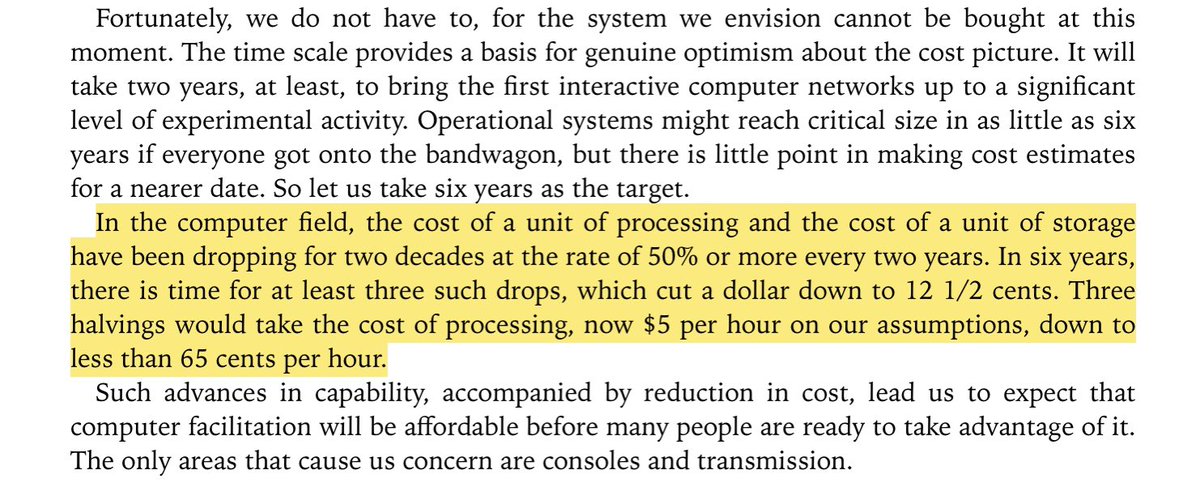1/ In 1968, former ARPA director J. C. R. Licklider published "The Computer As A Communication Device"
Given it was written right before the launch of the ARPANET, this is basically the founding document of the internet
And its predictions hold up remarkably well!
Given it was written right before the launch of the ARPANET, this is basically the founding document of the internet
And its predictions hold up remarkably well!

2/ For context: Mitchell Waldrop has called JCR Licklider "computing's Johnny Appleseed." As an ARPA director in the 60s, he basically funded half of the projects that became the internet
This paper was the brainchild of him & protege Bob Taylor, who later led Xerox PARC
This paper was the brainchild of him & protege Bob Taylor, who later led Xerox PARC
3/ Licklider opens straight to the point:
"In a few years, men will be able to communicate more effectively through a machine than face to face."
"The programmed digital computer can change communication more profoundly than did the printing press and the picture tube"
"In a few years, men will be able to communicate more effectively through a machine than face to face."
"The programmed digital computer can change communication more profoundly than did the printing press and the picture tube"

4/ Networked computing existed before 1969. But the ARPANET was the first universal network, connecting different proprietary hardware / OSes. This was possible due to packet switching, with each node connected by new 'message processors' (basically the first routers) 


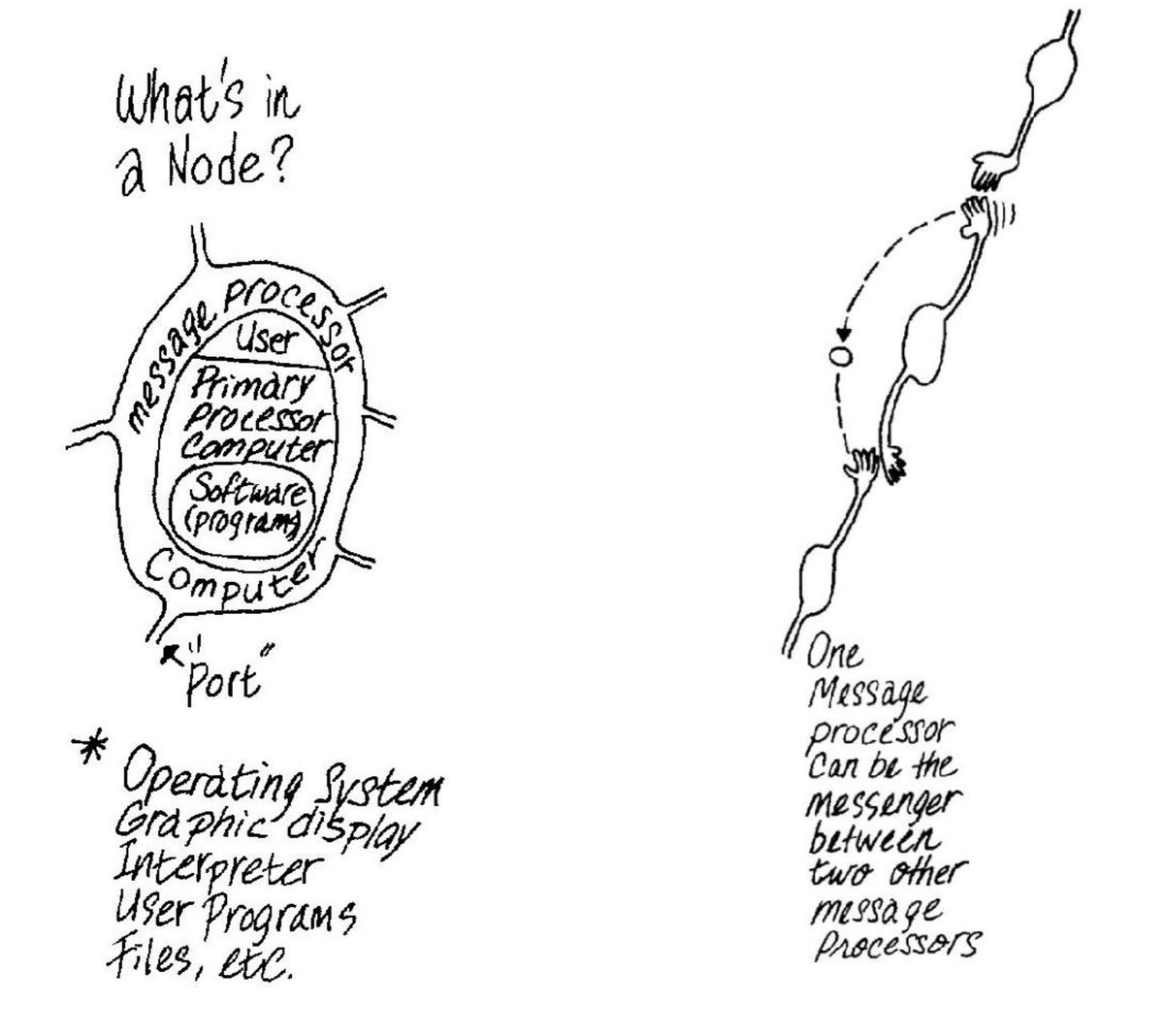
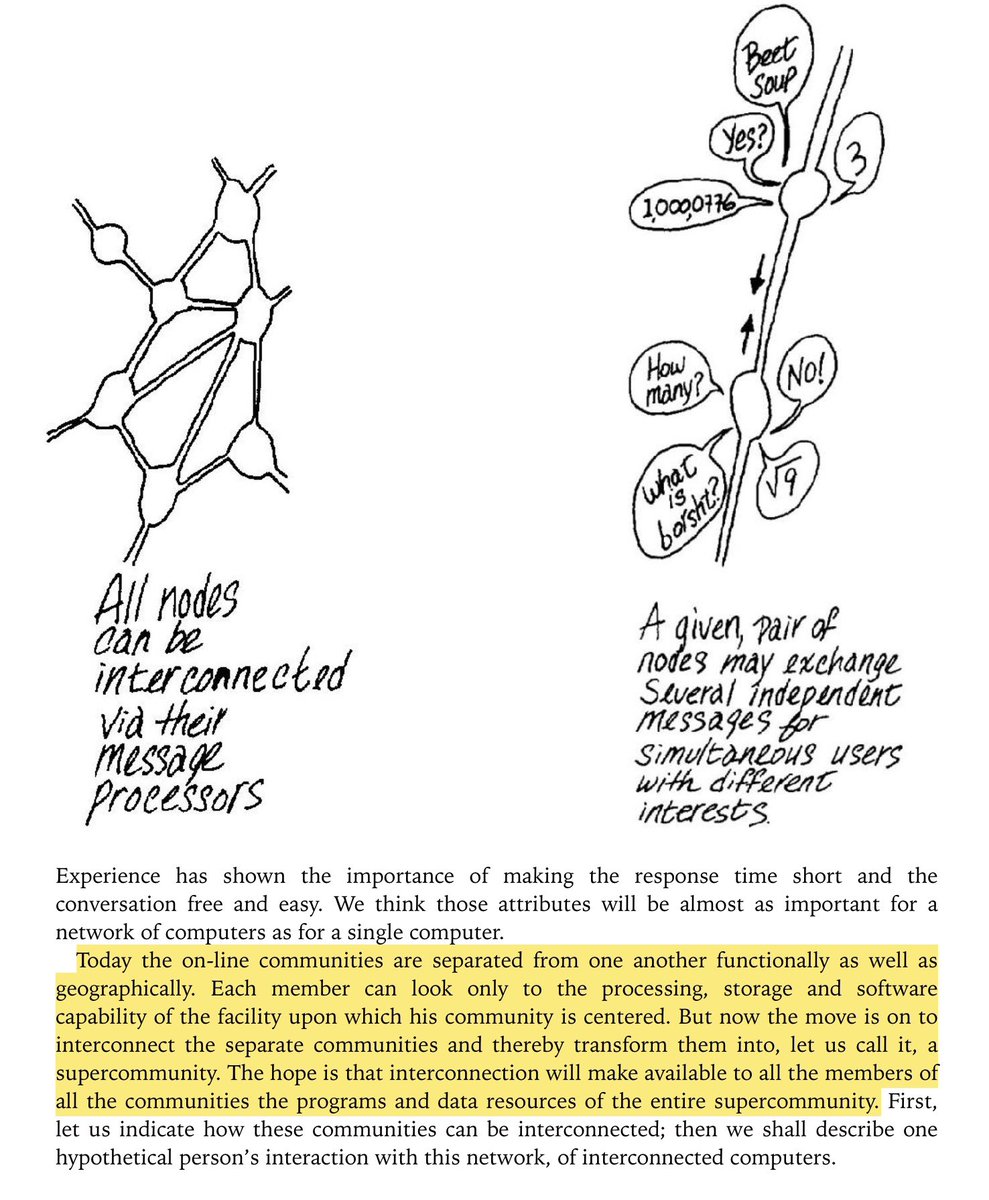
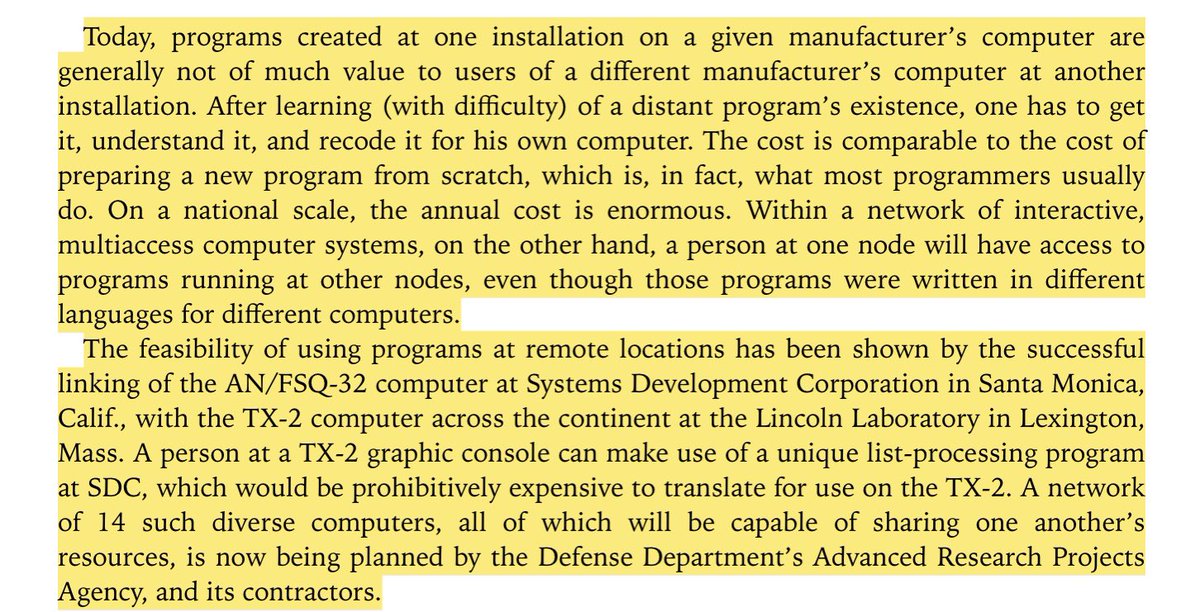
5/ Licklider's paper is oftentimes cited as a precursor to cloud computing as much as the internet. Really, the two are intertwined
This 1968 description of a hypothetical ARPANET user basically sounds like developer opening up the AWS web console!
This 1968 description of a hypothetical ARPANET user basically sounds like developer opening up the AWS web console!
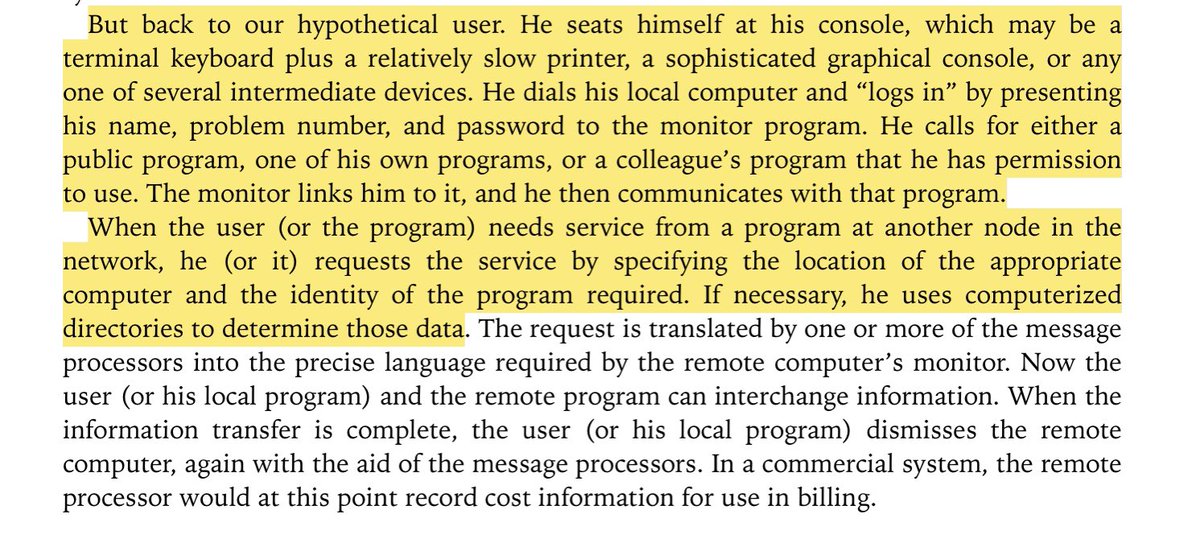
7/ The promise of the ARPANET: inventing email, and… Zoom
"You will not send a letter or a telegram; you will simply identify the people whose files should be linked to yours"
"You will seldom make a phone call; you will ask the network to link your consoles together"
"You will not send a letter or a telegram; you will simply identify the people whose files should be linked to yours"
"You will seldom make a phone call; you will ask the network to link your consoles together"

8/ One prediction that... hasn't quite panned out yet:
"You will seldom make a purely business trip, because linking consoles will be so much more efficient… you will spend much more time in computer-facilitated teleconferences"
"You will seldom make a purely business trip, because linking consoles will be so much more efficient… you will spend much more time in computer-facilitated teleconferences"
9/ What else will be available via the ARPANET? Licklider proposed:
- Investment guidance
- Tax counseling
- News
- Sports results
- Dictionaries & encyclopedias
- 'Teaching & testing programs'
- 'Communication programs'
- Investment guidance
- Tax counseling
- News
- Sports results
- Dictionaries & encyclopedias
- 'Teaching & testing programs'
- 'Communication programs'
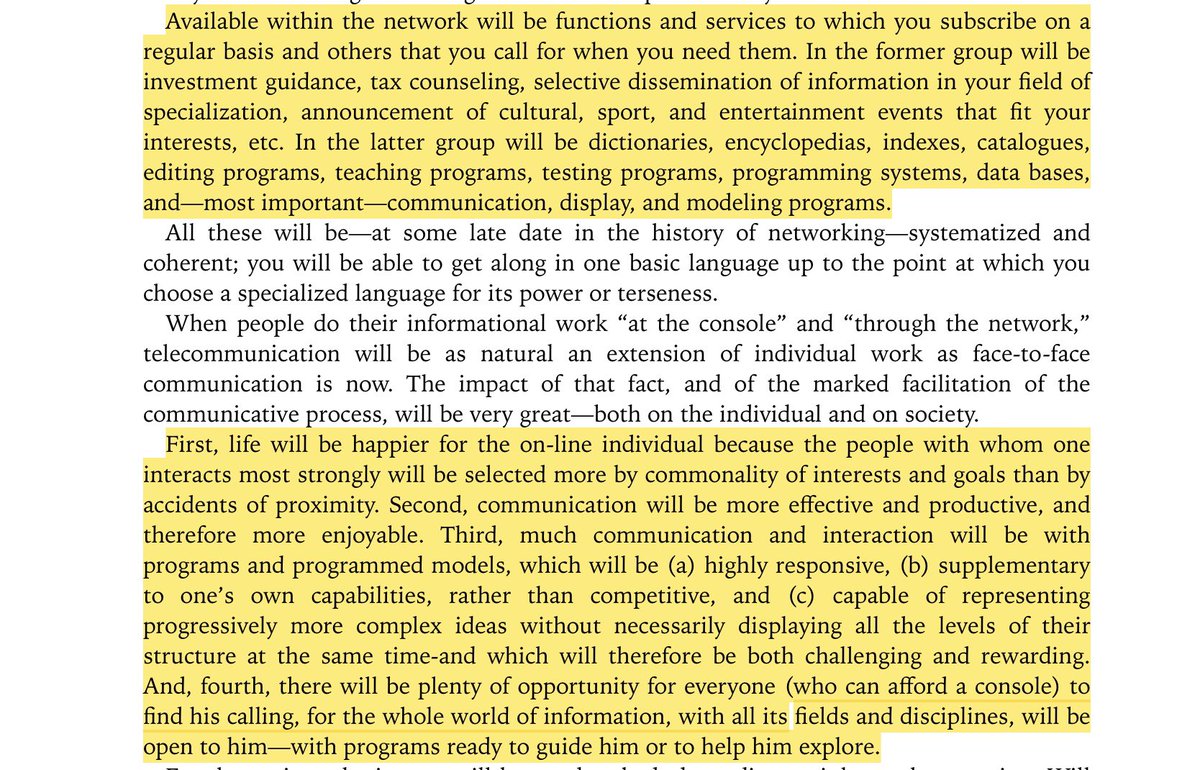
10/ So what's the takeaway here?
I've said it before, but I'll say it again: predicting the future is easy. Oftentimes the tech pioneers of the day will literally spell it out for you!
I've said it before, but I'll say it again: predicting the future is easy. Oftentimes the tech pioneers of the day will literally spell it out for you!
11/ The hard part is the gap between ideation and implementation. Despite the ARPANET launching in 1968, Licklider's ideas didn't *really* come to fruition until the invention of Netscape 26 years later
Are you prepared to wait that long?
Are you prepared to wait that long?
• • •
Missing some Tweet in this thread? You can try to
force a refresh
